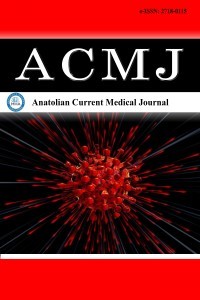1.
Fletcher CD, Berman JJ, Corless C, et al. Diagnosis of gastrointestinal stromal tumors: a consensus approach. Hum Pathol. 2002;33(5):459-465. doi:10.1053/hupa.2002.123545
2.
Howe JR, Karnell LH, Menck HR, Scott-Conner C. The American College of Surgeons Commission on Cancer and the American Cancer Society. Adenocarcinoma of the small bowel: review of the National Cancer Data Base, 1985-1995. Cancer. 1999;86(12):2693-2706. doi:10.1002/(sici)1097-0142(19991215)86:12<2693::aid-cncr14>3.0.co;2-u
3.
Gonzáles-Yovera JG, Roseboom PJ, Concepción-Zavaleta M, et al. Diagnosis and management of small bowel neuroendocrine tumors: a state-of-the-art. World J Methodol. 2022;12(5):381-391. doi:10.5662/wjm.v12.i5.381
4.
Yao JC, Hassan M, Phan A, et al. One hundred years after "carcinoid": epidemiology of and prognostic factors for neuroendocrine tumors in 35,825 cases in the United States. J Clin Oncol. 2008;26(18):3063-3072. doi:10.1200/JCO.2007.15.4377
5.
Coffin CM, Hornick JL, Fletcher CD. Inflammatory myofibroblastic tumor: comparison of clinicopathologic, histologic, and immunohistochemical features including ALK expression in atypical and aggressive cases. Am J Surg Pathol. 2007;31(4):509-520. doi:10.1097/ 01.pas.0000213393.57322.c7
6.
Edge SB, Compton CC. The American Joint Committee on Cancer: the 7<sup>th</sup> edition of the AJCC cancer staging manual and the future of TNM. Ann Surg Oncol. 2010;17(6):1471-1474. doi:10.1245/s10434-010-0985-4
7.
Bilimoria KY, Bentrem DJ, Wayne JD, Ko CY, Bennett CL, Talamonti MS. Small bowel cancer in the United States: changes in epidemiology, treatment, and survival over the last 20 years. Ann Surg. 2009;249(1):63-71. doi:10.1097/SLA.0b013e31818e4641
8.
Guthrie GJ, Charles KA, Roxburgh CS, Horgan PG, McMillan DC. The systemic inflammation-based prognostic score: a valuable biomarker in gastrointestinal cancers. Br J Cancer. 2013;109(2):322-328. doi:10.1038/bjc.2013.322
9.
Templeton AJ, McNamara MG, Šeruga B, et al. Prognostic role of neutrophil-to-lymphocyte ratio in solid tumors: a systematic review and meta-analysis. J Natl Cancer Inst. 2014;106(6):dju124. doi:10.1093/jnci/dju124
10.
Demetri GD, von Mehren M, Blanke CD, et al. Efficacy and safety of imatinib mesylate in advanced gastrointestinal stromal tumors. N Engl J Med. 2002;347(7):472-480. doi:10.1056/NEJMoa020461
11.
McMillan DC. Systemic inflammation, nutritional status and survival in patients with cancer. Curr Opin Clin Nutr Metab Care. 2009;12(3):223-226. doi:10.1097/MCO.0b013e32832a7902
12.
Gupta D, Lis CG. Pretreatment serum albumin as a predictor of cancer survival: a systematic review of the epidemiological literature. Nutr J. 2010;9(1):69. doi:10.1186/1475-2891-9-69
13.
Roxburgh CS, McMillan DC. Role of systemic inflammatory response in predicting survival in patients with primary operable cancer. Future Oncol. 2010;6(1):149-163. doi:10.2217/fon.09.136
14.
Suzuki H, Ohno T, Kato T, Sakurai M, Sasaki H. Serum C-reactive protein as a predictor of prognosis in small bowel adenocarcinoma. Int J Clin Oncol. 2006;11(2):98-103. doi:10.1007/s10147-005-0554-5
15.
DeMatteo RP, Lewis JJ, Leung D, Mudan SS, Woodruff JM, Brennan MF. Two hundred gastrointestinal stromal tumors: recurrence patterns and prognostic factors for survival. Ann Surg. 2000;231(1):51-58. doi:10. 1097/00000658-200001000-00008
16.
Jones RL, Serrano C, George S. The importance of early diagnosis in gastrointestinal stromal tumors. J Gastrointest Oncol. 2021;12(4):1485-1494. doi:10.21037/jgo-20-563
17.
Hirota S. The role of KIT mutation in gastrointestinal stromal tumors: advances and challenges. Curr Opin Gastroenterol. 2020;36(4):367-373. doi:10.1097/MOG.0000000000000649
18.
Guthrie GJ, Roxburgh CS, Horgan PG, McMillan DC. The systemic inflammation-based neutrophil-to-lymphocyte ratio in gastrointestinal tumors. Crit Rev Oncol Hematol. 2013;88(1):218-230. doi:10.1016/j.critrevonc.2013.03.010
19.
Forrest LM, McMillan DC, McArdle CS, Angerson WJ, Dunlop DJ. Evaluation of the prognostic value of NLR and PLR in gastrointestinal tumors. World J Surg Oncol. 2023;21:88-96. doi:10.1186/s12957-023-02738-9
20.
Aliustaoglu M, Bilici A, Ustaalioglu BB, et al. The effect of systemic inflammatory response on survival in GI tumors. Eur J Gastroenterol Hepatol. 2021;33(8):967-974. doi:10.1097/MEG.0000000000002190
21.
Keung EZ, Raut CP. The prognostic significance of serum albumin in patients with gastrointestinal stromal tumors. Ann Surg Oncol. 2021; 28(12):6578-6587. doi:10.1245/s10434-021-09897-4
22.
Kim JW, Ahn S, Kim KH, et al. Preoperative albumin level and postoperative outcomes in GI cancer patients. Cancer Res Treat. 2023; 55(2):591-601. doi:10.4143/crt.2022.1325
23.
Shrotriya S, Walsh D, Bennani-Baiti N, Thomas S, Lorton C, Krishnan S. Prognostic value of CRP in GI malignancies. Palliat Support Care. 2020;18(1):45-52. doi:10.1017/S1478951519000631
24.
Shimada Y, Morine Y, Imura S, Ikemoto T, Kanemura H. C-reactive protein levels and prognosis in gastrointestinal stromal tumors. Oncol Lett. 2022;24(1):207-214. doi:10.3892/ol.2022.13310
25.
Joensuu H, Eriksson M, Sundby Hall K, et al. Survival outcomes in GIST patients treated with imatinib: a 2022 update. J Clin Oncol. 2022;40(17_suppl). doi:10.1200/JCO.2022.40.17suppl
26.
Joensuu H, DeMatteo RP. Advances in the management of gastrointestinal stromal tumors. Lancet Oncol. 2022;23(6). doi:10.1016/S1470-2045(22)00123-4
27.
Miettinen M, Lasota J. Lymph node involvement in GISTs: clinical implications. Pathology. 2021;53(1):84-90. doi:10.1016/j.pathol.2020.09. 005
28.
Demetri GD, Antonescu CR, Blay JY, Heinrich MC, Hirota S, Joensuu H. Update on the clinical and molecular factors affecting GIST outcomes. J Natl Cancer Inst. 2023;115(3):245-255. doi:10.1093/jnci/djac247

